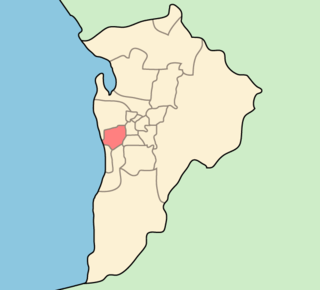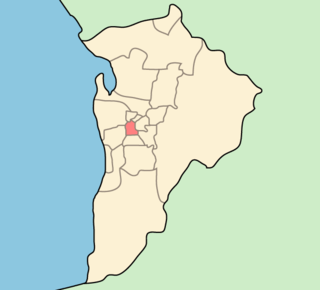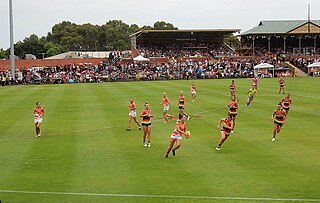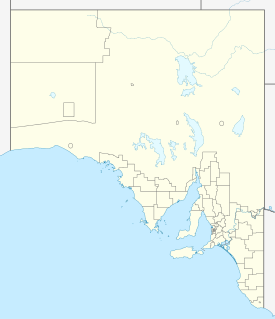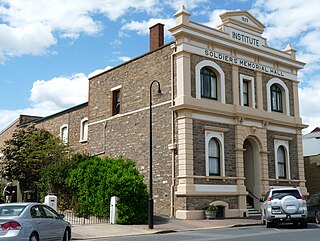| Town of Thebarton South Australia | |||||||||||||||
|---|---|---|---|---|---|---|---|---|---|---|---|---|---|---|---|
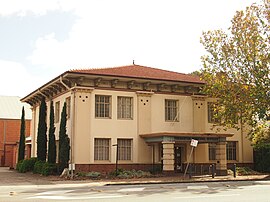 Former Thebarton Municipal Offices, pictured in 2014 | |||||||||||||||
| Coordinates | 34°54′55″S138°34′21″E / 34.9153°S 138.5725°E Coordinates: 34°54′55″S138°34′21″E / 34.9153°S 138.5725°E | ||||||||||||||
| Established | 1883 | ||||||||||||||
| Abolished | 1997 | ||||||||||||||
| State electorate(s) | Peake (1970–1997) West Torrens (1956–1970, 1915–1938) Thebarton (1938–1956) | ||||||||||||||
| |||||||||||||||
The Town of Thebarton was a local government area of South Australia from 1883 until 1997. It was seated at the village of Thebarton, now an inner west suburb of Adelaide.

Local government in Australia is the third tier of government in Australia administered by the states and territories, which in turn are beneath the federal tier. Local government is not mentioned in the Constitution of Australia and two referenda in the 1970s and 1980s to alter the Constitution relating to local government were unsuccessful. Every state government recognises local government in their respective constitutions. Unlike Canada or the United States, there is only one level of local government in each state, with no distinction such as cities and counties.

South Australia is a state in the southern central part of Australia. It covers some of the most arid parts of the country. With a total land area of 983,482 square kilometres (379,725 sq mi), it is the fourth-largest of Australia's states and territories by area, and fifth largest by population. It has a total of 1.7 million people, and its population is the second most highly centralised in Australia, after Western Australia, with more than 77 percent of South Australians living in the capital, Adelaide, or its environs. Other population centres in the state are relatively small; Mount Gambier, the second largest centre, has a population of 28,684.

Thebarton, formerly Theberton, is an inner-western suburb of Adelaide, South Australia in the City of West Torrens. The suburb is bounded by the River Torrens to the north, Port Road and Bonython Park to the east, Kintore Street to the south, and South Road to the west.

